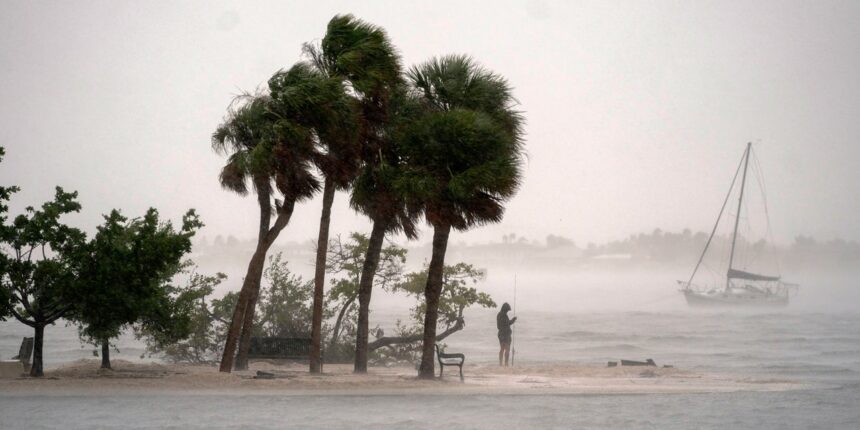In the weeks following Hurricane Ian in 2022, local health agencies—including those in Ft. Meyers, Florida, a place I frequently visit—warned beachgoers to stay out of the ocean because it was teeming with debris, untreated wastewater, and other pollutants. And yet, there were still reports of people wading in the surf (something I witnessed firsthand). That’s a big deal: Some people were hospitalized with issues stemming from dirty water following the hurricane, whether ingesting or wading through it—and a handful of folks even died.
After Hurricane Milton recently made landfall near Siesta Key, Florida, I worried about all the people who might underestimate the seriousness of the situation, even after the storm had passed. “It’s really not safe to be in the waters after a hurricane,” Norman Beatty, MD, FACP, an assistant professor of medicine at the University of Florida College of Medicine, tells SELF. The Florida Department of Health also issued a blanket advisory warning locals to stay out of the ocean.
So why is post-hurricane seawater so gross—and when will it be safe to swim again? Here’s everything you need to know.
How the ocean gets so filthy after a major storm
Hurricanes are tropical cyclones typically categorized with a 1 to 5 rating based on wind speed. A category 1 storm, for example, generates gusts anywhere between 74 and 95 miles per hour, while a category 5 (the most intense) causes it to swirl at a whopping 157 miles per hour or higher. Hurricane Milton was a category 3 hurricane, which means that winds got to 129 miles per hour.
This all causes the tides to pick up, pulling ocean water onto land (called a storm surge), which combines with excess rainwater. All that water mixes with chemicals already on the ground, like pesticides, oils, and fertilizers, as well as debris blown off battered houses, trees, and buildings during the storm. Sewage can also burst from underground pipes, littering the water with E. coli, Campylobacter, Salmonella, and norovirus—“the list goes on and on,” Rachel Noble, PhD, a molecular microbiologist who researches water quality and extreme events at the UNC Institute of Marine Sciences, tells SELF. After the hurricane passes, water slowly retreats into the ocean, Dr. Beatty says, transforming the sea into a slurry of hazards.
Why getting into post-hurricane water is so dangerous
If you have a cut anywhere on your body and get into contaminated water, you could develop a skin problem, like cellulitis, which is a deep tissue infection, Dr. Beatty says. (You might also develop a rash from chemical exposure even if you don’t have a cut.) If you accidentally get seawater in your mouth, you could ingest Salmonella, which can cause diarrhea, fever, nausea, and abdominal cramps.
Read the full article here



